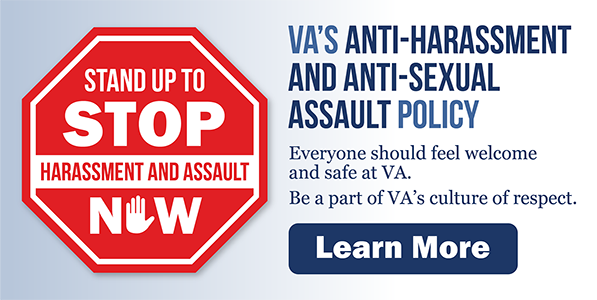Beneficiary
What is the Fiduciary Program?
The purpose of the Department of Veterans Affairs (VA) Fiduciary Program is to protect beneficiaries who are unable to manage their VA benefits through the appointment and oversight of a fiduciary.
If you have been determined unable to manage your VA benefits, the VA will conduct a field examination to appoint a fiduciary to assist you.
The VA Field Examination
A VA field examination will be scheduled for the purpose of appointing a fiduciary to assist you in managing your VA benefits. During the field examination, please have the following information available for review by the field examiner:
- Photo identification.
- The source and amount of all monthly bills, recurring expenses (annual, bi-annual, quarterly, etc.), and income.
- A list of all assets, to include bank accounts, owned property, stocks, bonds, life insurance, burial plans, etc.
- A list of all current medications.
- Name, phone number, and address of your primary care doctor.
- Name, phone number, and address of your next of kin.
Selection Process
During the selection process, the VA will first seek to qualify the individual you desire to serve as your fiduciary.
The fiduciary selection is based on an assessment of the qualifications of the proposed fiduciary. When seeking a fiduciary, the following individuals and entities may be considered:
- a spouse or other relative
- chief officer of a public or private institution in which the beneficiary receives care
- the beneficiary’s preference, or
- a professional fiduciary.
An assessment of the qualifications of a proposed fiduciary includes, but is not limited to:
- the willingness to serve and abide by all agreements
- an interview with a VA representative
- credit report review, and
- an inquiry into the criminal background.
What Are My Rights?
The determination that you are unable to manage your VA benefits does not affect your non-VA finances, or your right to vote or contract.
You have the right to appeal or request review of VA's decision finding that you are unable to manage your VA benefits. You also have the right to appeal VA's selection of the fiduciary. If you disagree with the VA on either of these matters, you may:
- appeal to the Board of Veterans' Appeals (Board) by telling us you disagree with our decision and want the Board to review it, or
- give us evidence we do not already have that may lead us to change our decision.
For more information on filing an appeal or requesting review of VA’s decision, please see the section titled, "What Should I Do if I Disagree With VA’s Decision?"
You may also request to have your ability to manage your VA benefits be re-evaluated, or to have a new fiduciary appointed, at any time. If you wish a re-evaluation, please submit your request in writing with any supporting medical evidence to the:
VA Fiduciary Intake Center
P.O. Box 5211
Janesville, WI 53547-5211
For more information on contacting VA about fiduciary matters please see Contact Us - Fiduciary.
The Brady Handgun Violence Prevention Act prohibits you from purchasing, possessing, receiving, or transporting a firearm or ammunition if you have “been adjudicated as a mental defective or been committed to a mental institution.” In compliance with this act, the Consolidated Appropriations Act of 2024, and Public Law 118-83, VA must report the names of certain individuals to the Federal Bureau of Investigations (FBI). As of March 2024, VA only reports the names of incompetent beneficiaries to the FBI if there is an order or finding of a judge, magistrate, or other judicial authority of competent jurisdiction that an incompetent beneficiary is a danger to self or others. The FBI (then adds the names to a database called the National Instant Criminal Background Check System (NICS). Gun dealers must check NICS for the name of a potential buyer before selling him/her a firearm. You may be fined and/or imprisoned if you knowingly violate this law. You may apply to VA for relief of firearms prohibitions imposed by the law by submitting your request to the VA. The VA will determine whether such relief is warranted.
What Should I Do if I Disagree With VA’s Decision?
If you do not agree with our decision, you have one year from the date of your decision letter to select a review option in order to protect your initial filing date for effective date purposes. You must file your request on the required application form for the review option desired. Here are the review options and their respective required application form:
- Supplemental Claim - VA Form 20-0995, Decision Review Request: Supplemental Claim
- Higher-Level Review - VA Form 20-0996, Decision Review Request: Higher-Level Review, or
- Appeal to the Board of Veterans’ Appeals - VA Form 10182, Decision Review Request: Board Appeal (Notice of Disagreement).
What happens after VA receives the decision review option I selected?
We will review your case and consider any additional evidence you provide. If we change our decision, we will notify you in writing.
How long do I have to select a decision review option?
You have one year from the date of the notification letter regarding the selection of your fiduciary. Your decision review option form must be postmarked or received by us within one year from the date of this letter.
What happens if I do not submit my decision review option on time?
If you do not submit your decision review option on time, our decision will become final.
For information on hearing requests, please see VA Form 10182, Decision Review Request: Board Appeal (Notice of Disagreement).
Where can I find out more about the decision review options available to me?
VA Form 20-0998, Your Right To Seek Review Of Our Decision, explains your options in greater detail and provides instructions on how to request further review. You may download a copy of any of the required application forms noted above by visiting www.va.gov/vaforms/ or you may contact us by telephone at 1-800-827-1000 and we will mail you any form you need.
You can visit www.va.gov/decision-reviews to learn more about how the disagreement process works.
If you would like to obtain or access evidence used in making this decision, please contact us by telephone, email, or letter as noted below letting us know what you would like to obtain. Some evidence may be obtained online by visiting https://www.va.gov/.




















